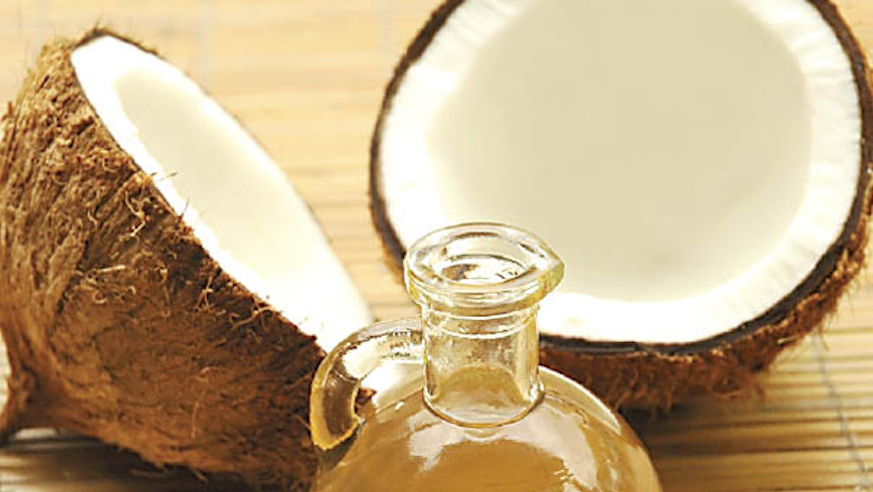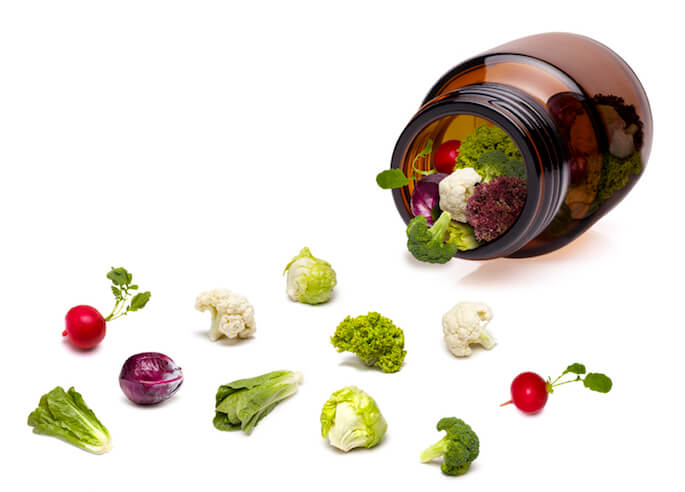It’s time to stop pretending coconut oil health benefits exist — a new American Heart Association has officially labeled it one of the bad fats.
It’s actually worse for you than eating butter, lard or palm oil, according to a Dietary Fats and Cardiovascular Disease advisory issued last week.
The review of dietary fats shows coconut oil increased the LDL — or “bad” — cholesterol in seven out of seven controlled trials.
It makes sense, considering 82 percent of the fat in coconut oil is saturated — that’s far more than butter (63 percent), beef fat (50 percent) or pork lard (39 percent.)
“Because coconut oil increases LDL cholesterol, a cause of [cardiovascular disease], and has no known offsetting favorable effects, we advise against the use of coconut oil,” the American Heart Association said.
The American Heart Association isn’t telling you to do away with fats altogether though; the advisory stressed the importance of swapping out saturated fats for polyunsaturated fats — canola, corn, soybean, peanut, safflower, sunflower, and walnut oils — or monounsaturated fats.
Polyunsaturated fats seem to lower risk of heart disease the most, followed by monounsaturated fats. Saturated fats are the worst for heart health and those with more saturated fats in their diets carry the highest risk of heart disease — which kills more than 17 million people every year.
“Scientific studies that lowered intake of saturated fat and replaced it with polyunsaturated vegetable oil reduced cardiovascular disease by approximately 30 percent; similar to cholesterol-lowering drugs, known as statins,” the Heart Association wrote in the advisory.
Coconut oil health benefits and the healthy myth
So where exactly did this myth that coconut oil health benefits are endless come from?
Harvard Professor Frank Sacks, lead author of the report, told USA Today he has no idea why people think coconut oil is healthy. After all, the oil, extracted from the meat of a coconut is almost 100 percent fat — and saturated fat at that.
The likely culprit is misunderstood weight loss studies.
“The reason coconut oil is so popular for weight loss is partly due to my research on medium-chain triglycerides,” Marie-Pierre St-Onge, associate professor of nutritional medicine at Cornell University Medical School told Time Magazine. “Coconut oil has a higher proportion of medium-chain triglycerides than most other fats or oils, and my research showed eating medium-chain triglycerides may increase the rate of metabolism more than eating long-chain triglycerides.”
St-Onge’s study found the medium chain triglycerides appeared to increase post-meal calorie burn and even resulted in extra weight loss for men.
Sounds legit, right? Wrong.
If you dig deeper into St-Onge’s research, you’ll find the study was done using “designer oil” containing 100 percent medium-chain triglycerides (or, MCT oil), while coconut oil contains just 13 percent to 15 percent. A later study proved smaller doses of the medium chain triglycerides — like the amount found in coconut oil — do not help with calorie burning and another study found coconut oil
Coconut oil as a topical treatment
OK so there’s some pretty convincing evidence that the coconut oil as a healthy alternative is bogus, but that doesn’t mean it’s time to toss all your coconut oil.
Coconut oil has a lot of external uses. Some, like oil pulling, remain unproven, but coconut oil has been proven to be a very effective moisturizer, hair conditioner and makeup remover — and much healthier than its chemical laden in-store counterparts.
Here are our seven favorite uses for external coconut oil use:
— All-natural bug spray: Combine half a cup of coconut oil with 10 drops tea tree oil and spray.
— Natural massage oil: If you haven’t tried this yet, here’s an excuse to get a massage.
— Natural moisturizer: Coconut oil is great for dry skin.
— Natural conditioner: Coconut oil can moisturize your hair too — add the oil to clean wet hair, let it absorb and rinse.
— Soothe sunburns: Apply for some sweet relief.
— Treat cuts: Coconut oil contains antioxidants that can help cuts heal faster.
— Makeup remover: Apply coconut oil to a cloth or cotton ball, wipe off makeup and rinse off with warm water.
As Sacks said to USA Today, “You can put it on your body, but don’t put it in your body.”
























